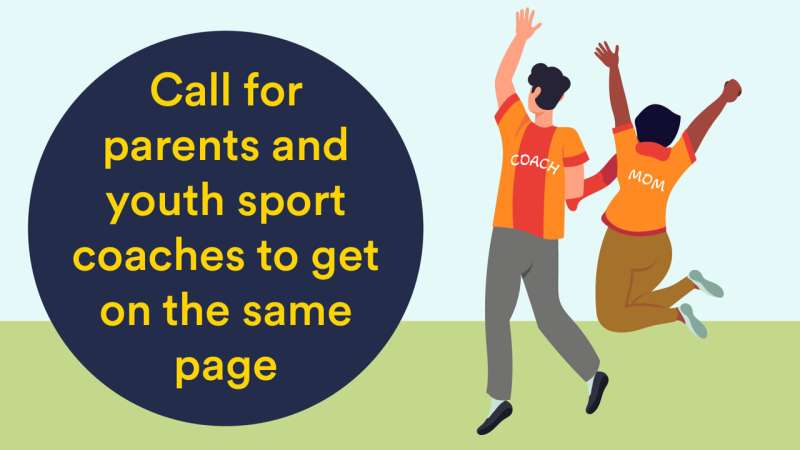This article has been reviewed according to Science X's editorial process and policies. Editors have highlighted the following attributes while ensuring the content's credibility:
fact-checked
trusted source
proofread
Call for parents and youth sport coaches to get on the same page

Parents and youth sport coaches need to have positive relationships to foster positive sporting experiences and enable young people to reach their sporting potential—but there's currently no clear direction about the best way for them to come together.
Flinders University researchers examining youth sport say that developing better coach-parent relationships that create an environment conducive to positive youth sport experiences and outcomes will require a fresh approach and a more interactive perspective. The research, "A scoping review of coach-parent interactions and relationships across youth sport settings," has been published in International Review of Sport and Exercise Psychology.
Improving interactions and communication between parents and coaches needs a clear pathway spelled out, says Associate Professor Sam Elliott, researcher in Sport Psychology, Coaching and Youth Sport at Flinders University's College of Education, Psychology and Social Work.
"Parents and coaches play a crucial role in maximizing a range of psychosocial and developmental outcomes in youth sport, but parents and coaches are not always on the same page, and this leads to the development of conflictual relationships, negative perceptions, and communication breakdowns," says Associate Professor Elliott.
"Improving the relationship between parents and coaches could have far-reaching positive effects in youth sport. It could help to rebuild the volunteer workforce, support children's sport development, and reduce the risk of sport dropout."
The new scoping review of published studies about coach-parent interactions identified the characteristics of both effective and ineffective coach-parent relationships, which Associate Professor Elliott says provides useful signposts towards improvement.
The research suggests that interventions will play an important part in reshaping better relationships between coaches and parents.
"It's crucial to create strategies that focus on small-scale change, addressing such matters as how parents and coaches behave in partnership with each another," says Associate Professor Elliott.
"We also need to address the bigger picture—to look at how culture, social rules and policies can influence how parents and coaches work together.
"Even the best parent and coach relationship can be compromised by an unrelenting culture that is focused too heavily on solely performance outcomes."
While organized youth sport is considered valuable for positive youth development (which comprises of the 5Cs: competence, confidence, character, connection and care), it can also foster negative developmental experiences, from overemphasizing winning, coach pressure and conflicting relationships—although Associate Professor Elliott believes that better parent-coach relationships can tip the scales toward more positive outcomes.
More information: Fernando Santos et al, A scoping review of coach-parent interactions and relationships across youth sport settings, International Review of Sport and Exercise Psychology (2024). DOI: 10.1080/1750984X.2024.2332986




















